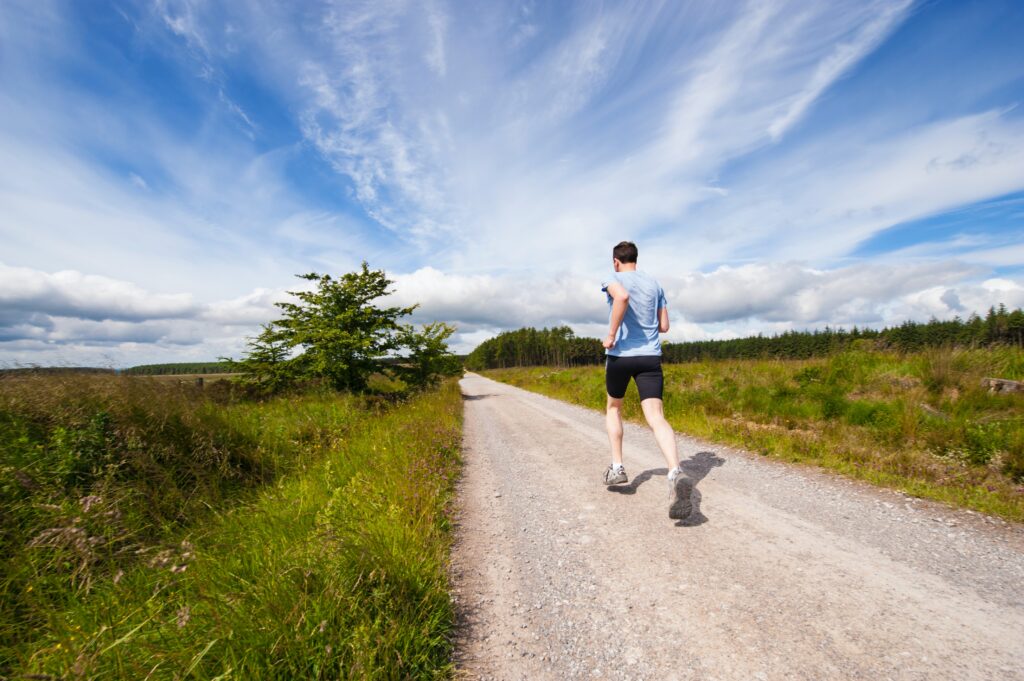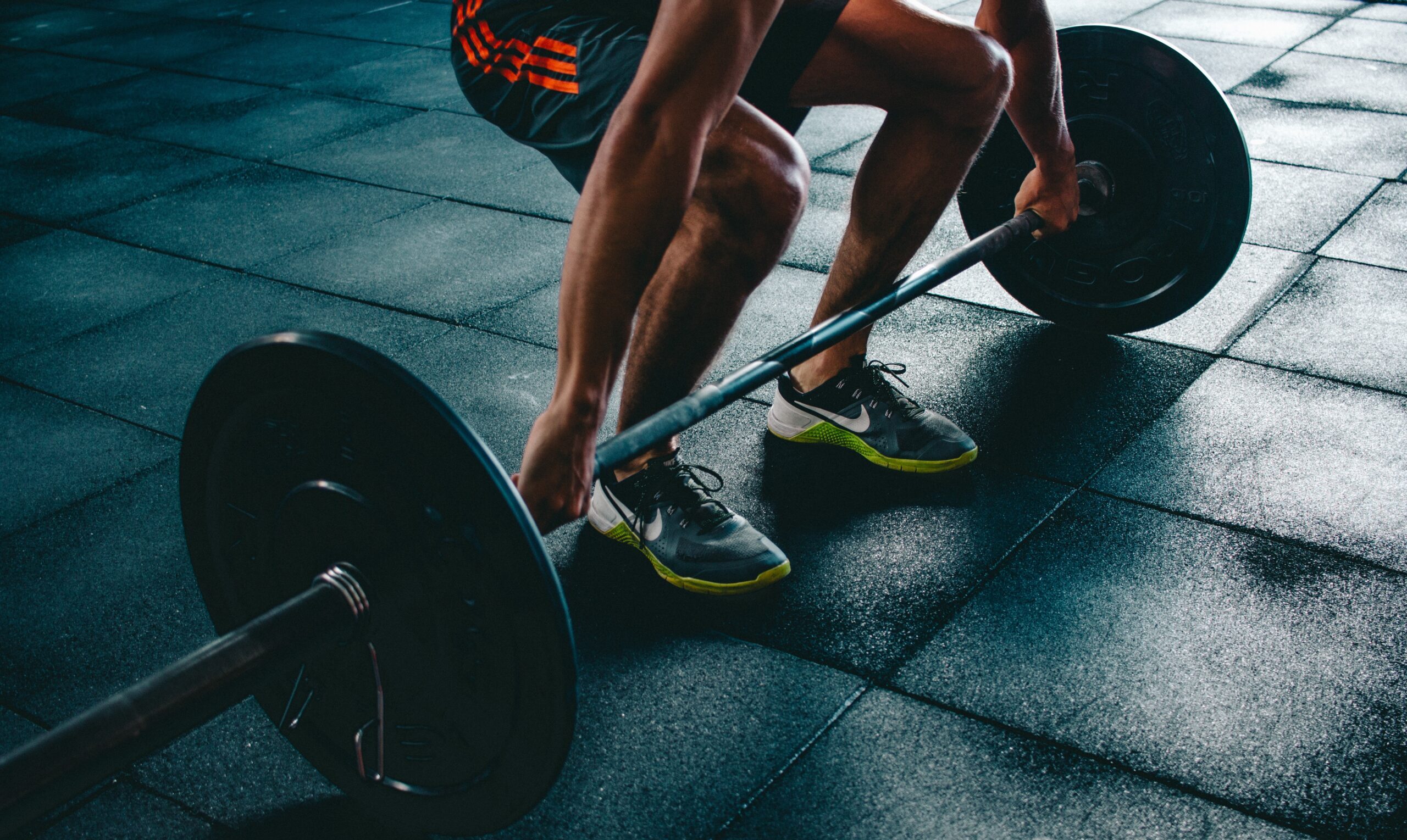Exercise is a great way to reduce stress and improve your overall mood. In this post, we will discuss the science behind the answers on why does exercise reduce stress, and we will offer some tips on how to get started.
Stress is a part of life, but it doesn’t have to control you.
Why does exercise reduce stress?
The body is made to move so doing just that offers great physical and mental benefits.
When you exercise, your body releases endorphins, which are hormones that have mood-boosting effects. Endorphins can help to reduce anxiety, improve your sleep, and boost your energy levels. Exercise can also help to improve your self-esteem and reduce your risk of developing chronic diseases such as heart disease, stroke, and diabetes.
Endorphins help your body avoid pain and increase feelings of pleasure. A healthy brain signals the release of endorphins during moments of shock, freeze, “fight or flight,” trauma and stress, or physical pain. They can then bind to receptors in the nervous system and inhibit or slow the release of proteins involved in pain signaling.
The science behind exercise and stress
- Increase Endorphins
- Exercise releases endorphins. These endorphins can act as a pain-killer and also increase the feeling of pleasure.
- A study published in the journal “Brain, Behavior, and Immunity” in 2004 found that exercise increased the production of endorphins, which have mood-boosting effects.
- The release of endorphins also boosts dopamine release known as the “happy” neurotransmitter behind our reward and pleasure responses.
- Reduces cortisol levels
- Exercise can help to reduce cortisol levels, which is a stress hormone. High levels of cortisol can lead to a number of health problems, including weight gain, heart disease, and high blood pressure.
- A study published in the journal “Psychosomatic Medicine” in 2001 found that people who exercised for 30 minutes three times per week had lower levels of cortisol, than those who did not exercise.
- Chronic stress is a leading causes of physical problems such as heart disease and cancer, and a huge contributor to mental health issues including suicide. Managing our cortisol levels is vital.
- Improves sleep
- Exercise can help to improve sleep quality, which can help to reduce stress levels. When you are well-rested, you are better able to cope with stress.
- A study published in the journal “PLOS One” in 2012 found that exercise improved sleep quality in people with insomnia.
- More than half of adults in the world report they get less sleep than they need on an average night. Sleep is a vital process that supports muscle and tissue repair and removes toxins from our cells.
- Increases self-esteem
- Exercise can help to increase self-esteem and confidence. When you achieve a goal, such as completing a workout, it can boost your self-image and make you feel good about yourself.
- Picking up a new skill and developing through exercise such as tennis, or boxing can also give a great sense of achievement and help you connect with others.
- The study published in “The Lancet” in 2005 involved 1,500 people who were followed for 10 years. The people who exercised regularly were 30% less likely to develop depression than those who did not exercise.
- Improves physical and cognitive health
- Exercise can help to improve your physical health in a number of ways, including reducing your risk of heart disease, stroke, type 2 diabetes, and some types of cancer. When you are physically healthy, you are better able to cope with stress.
- The study published in “Frontiers in Psychology” in 2016 involved 100 older adults. The people who exercised regularly had improved cognitive function compared to those who did not exercise.
The best value form of exercise
The best value form of exercise will depend on your goals and interests as a person. If you want to get better at swimming and want to practice cold water therapy then the best value form of exercise for you may be open water swimming. Some people want to start out gently with 30 minutes of walking per day in the woods, whilst others prefer to challenge themselves and push through the gym 6 times a week.
Choose the form of exercise that you are interested in, that gets you to places you want to be, for instance surrounded by nature. Conversely, do something that you’d be happy to see some progression in, such as weight lifting or martial arts.
It has to fit in your schedule and be accessible, so you can remain consistent.
Some common forms of exercise are:
- Aerobic exercise: Cycling, dancing, swimming and running. These are important to develop your cardiovascular health.
- Strength training: Weight training and calisthenics. These are vital for bone health and muscle mass.
- Flexibility & Mobility & Balance: Yoga, tai chi and Pilates. These are great for keeping your body nimble and avoiding injuries.
How often should you exercise?
According to the Centers for Disease Control and Prevention (CDC), adults should get at least 150 minutes of moderate-intensity aerobic activity or 75 minutes of vigorous-intensity aerobic activity each week.
I believe in being active everyday, and a good guideline would be 3 intense activities every other day such as running, interval training, swimming, weights. With light-moderate exercise on the other days such as walking, cycling, yoga.
An example schedule could look like this:
- Monday (Intense): Intense swimming
- Tuesday (Light): 30 minutes walking
- Wednesday (Intense): Weights at gym
- Thursday (Light): Yoga
- Friday (Intense): Sprinting
- Saturday (Light): Moderate cycling
Of course your ideal schedule will depend on your health goals, lifestyle, availability but the above highlights that you should not train intense all day everyday. Your body needs time to rest, and rest can be active in the form of yoga, or a walk/bike ride in nature.

My Experience with exercise
Exercise for me has been instrumental in managing stress. I’ve used exercise as a way to deal with stress for over 12 years, starting with the weights at the gym.
Eventually as I grew older and wiser I tailored my exercise towards new goals, such as having the mobility and strength to be functional and pain free. So I focused more on stretching and calisthenics.
A few years after that it was more about being outdoors in nature, so I took up mountain biking for a few years. More recently, I wanted to develop a new skill so I took up kickboxing. All these different forms of exercise have challenged me in unique ways and put me in positions where I was forced to grow and develop myself.
You don’t have to stick with the same form of exercise if you’re starting to get bored, there are endless ways you can practice movement and some you will enjoy more than others depending on your goals or how you’re feeling.
The most important thing is actually making sure you do something, whether it’s jogging, rowing, Olympic weight lifting. You should aim to challenge yourself to help your body and mind grow.
For me personally, I work out every day moderately-intense except Sunday where I will simply walk or do some yoga. The other days involve either kickboxing or calisthenics & weight training. Nasal breathing during exercise has been a game changer for endurance and staying calm, especially during kickboxing.
One important lesson I’ve learnt is that the increase in exercise should be met with an increased focus on recovery, so I have to keep up with my intermittent fasting, cold water therapy and breathing exercises If I want to be able to perform every day.
I feel my best when I am actively progressing and working on my self every day, there are days where I don’t feel like working out but it is so much more valuable to do something than nothing. A lot of the time those workouts you weren’t feeling up for are some of the best, and you always finish feeling better than when you started.
Doing things you know that are good for you, even when you don’t feel like it, is the best way to build self-discipline and promote good behaviour to become the person you to be.
How has exercise impacted your life? Let me know in the comments



Leave a Reply